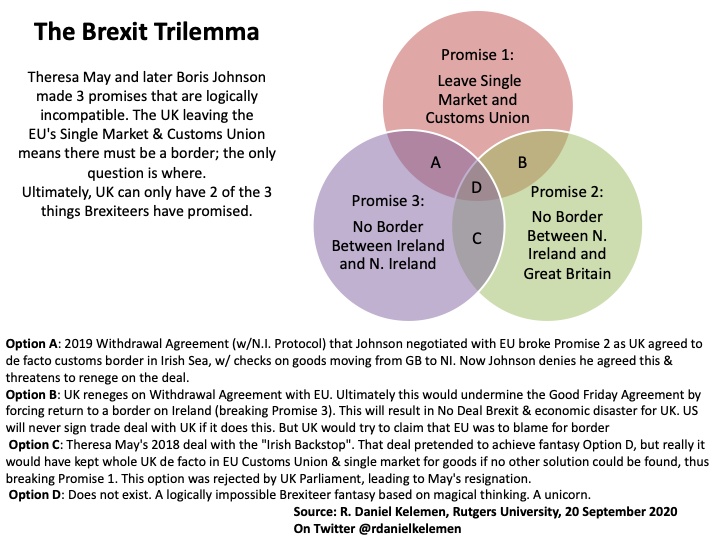I wrote a blog for @UKandEU on the internal market bill, and the implications for the UK's future relationship with the EU.
Here it is recast as a twitter thread. 1/8
Here it is recast as a twitter thread. 1/8
The Govt is signalling that it may legislate contrary to international law. That is unlikely to play well with the EU, or any future international partners. 2/8
The Bill is limited, but the Govt's rhetoric is not. It is insisting on sovereignty (the freedom to make whatever rules it likes) *and* on unfettered trade. 3/8
In other news... we will 'take back control of our borders', lorry parks, Kent Access Permits, curbs on immigration.
All these speak to the recognition that once the UK is no longer part of the EU, there will be borders and border checks. 4/8
All these speak to the recognition that once the UK is no longer part of the EU, there will be borders and border checks. 4/8
So... trade will *not be unfettered*. Once the UK leaves the EU's regulatory orbit, there will be a border between the UK and the EU. 5/8
The question, assuming the UK leaves the single market and customs union, is not *if* there will be a border, but *where* there will be a border. That this needs to be said at this stage in the UK's journey beggars belief. 6/8
In the WA, the UK accepted that there would be checks on trade between GB and NI. Now it appears that it no longer accepts this. So... where is the border going to go? 7/8


And why has there been no semblance of a coherent answer to this question?
Anyway... the blog is here for all those who want a slightly longer read. 8/8
ukandeu.ac.uk/internal-marke…
Anyway... the blog is here for all those who want a slightly longer read. 8/8
ukandeu.ac.uk/internal-marke…
• • •
Missing some Tweet in this thread? You can try to
force a refresh




